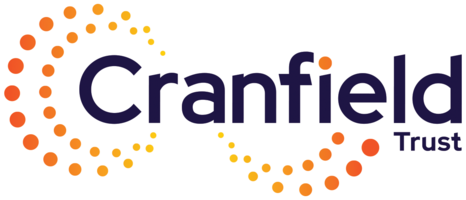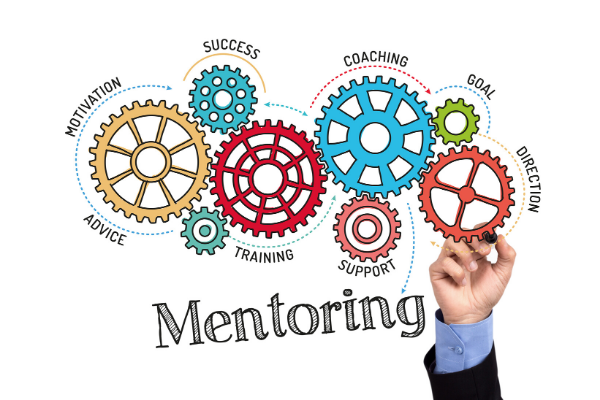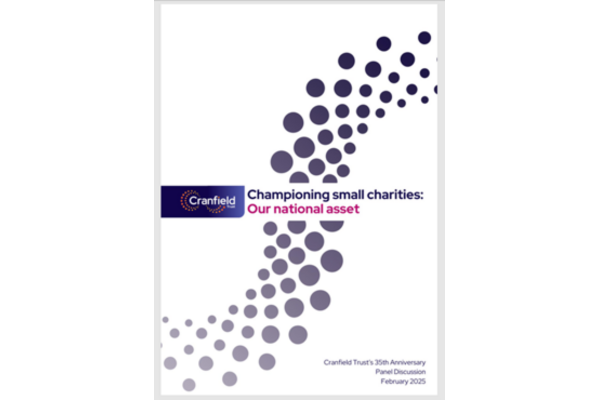Lonely, cold and some days blowing a gale, that’s what being at the helm of a charity can feel like. Directional uncertainty can be overwhelming. Sounds dramatic, unfortunately all too often an accurate description of how CEOs and senior managers in charities feel. The odds are often against them; austerity measures, funding cuts, increasing demand for services, negative media reports disproportionally tarnishing the sector and a rise in red tape reporting. As in any business, commercial or charity, senior leaders benefit from support, someone to listen to their concerns, someone who has reached a summit and can share their experience, their success, mistakes and lesson learned.

Albert Einstein said, “The problems we face today cannot be solved by the same level of thinking we were at when we created them”. Never has this statement been truer than now. Think how much has changed since the first signs of spring brought life to the winter worn landscape. A mentor can be so important, helping CEOs and charity leaders deepen their thinking. Mentors hear, reflect and re-engage, focussing on humanity to guide mentees towards results.
Understanding the difference between a mentor and a coach is important, I think more so for the mentor than their mentee because in either case the mentee benefits but in a different way. The mentor should know in what capacity they are approaching the relationship, so that expectations are understood and frames of reference are aligned.
I like N.Maclennon’s definition; “A coach is someone for the mentee to learn WITH. A mentor is someone for the mentee to learn FROM”.
Perpetuating the confusion between mentoring and coaching maybe down to the Oxford Dictonary definition: Mentor: “an experienced person who advises and helps somebody with less experience over a period of time”. People generally ‘like’ the word “mentor”. It’s preferred over “management consultant” or “coach”. Perhaps Greek Mythology is ingrained in our psyche, readers of Homer’s Odyssey will recognise Mentor as Odysseus’ trusted friend who supported his son Telemachus during his father’s absence. This image of kind, gentle, wisdom maybe used to gain acceptance and momentum for more directive consultancy support. Being mentored seems slower, paced, trusted and perhaps more equal than being coached or consulted. For these reasons to dilute fear of being coached or consulted, mentors are offered, but coaches or consultants are delivered, accepted and appreciated.
There is a further debate which looks at mentoring vs advocacy. Successful organisational change needs a strong, visible change sponsor (CEO and Chair), supported by sustaining sponsors (senior management team). Sponsors legitimise change which agents (management and staff) are then responsible for implementing. The change is delivered by the targets (staff and volunteers) – these people have to change.

It’s the advocates (funders, philanthropist, beneficiaries, influencers), who want to achieve the change but do not possess the power to legitimise it that can sometimes be confused with mentors. As personal advocates, they aren’t mentors but they seek to influence others to support an agent or maybe a sponsor – they will be absolutely behind them and their decisions. Looking to achieve greater synergy and overall success. In some cases philanthropists or patrons play this role, they truly believe in an organisation and its leaders and will do whatever is in their power to raise its profile, generate funds, develop and strengthen leadership. It would be great to see more advocates who are not necessarily philanthropists, or fundraisers but movers and shakers that can make a charity stronger. We need to beware not to confuse mentors with advocates.
The Trust cannot help charities with advocates but can offer trained mentors as part of its quality mentoring programme which aims to strengthen leadership and enable organisations to better provide services for their beneficiaries. Many of you will have had a mentor at some point to help you think through difficult decisions, some of you have one now. If you don’t please reach out. We’re in a perfect storm and now is no time to be alone, a thinking partner can make all the difference not only with major decisions and navigating change but even more to support your well being.
Our mentoring programme is gaining momentum and we’ve received very great feedback, for example Jane from the Dragonfly Cancer Trust in Newcastle wrote:
“Since lockdown, I have been working alone and feeling very isolated and was delighted to learn that the Cranfield Trust was offering support by way of a mentoring scheme. I cannot begin to explain the value of having a mentor and the positive actions that have evolved from each meeting.
Having someone so knowledgable and professional to talk to who is not directly linked to the organisation, provides an opportunity to examine situations with a fresh approach.”
Sometimes the mentoring support is focussed on well-being and mental health, feedback in confidence from another mentee:
“Just wanted to say THANK YOU so much for the introduction to Michelle she is so nice we spoke on the phone yesterday and she made me feel so much better, thanks again.”
If you're a leader working for a human welfare charity and would like to learn more about our mentoring programme, get in touch today by emailing [email protected] or call us on 01794 830338.








